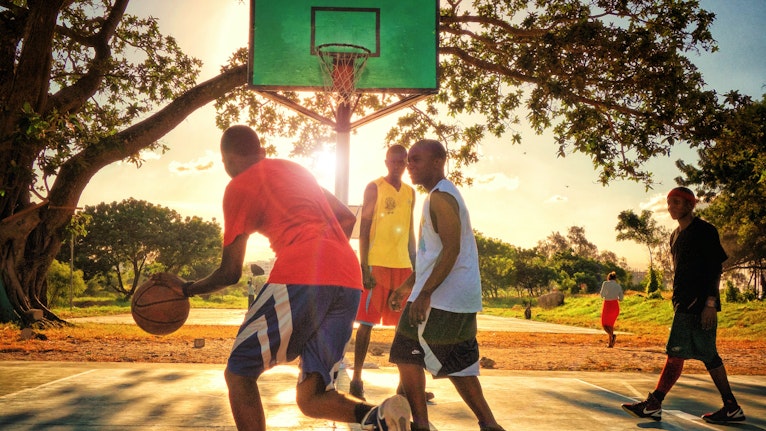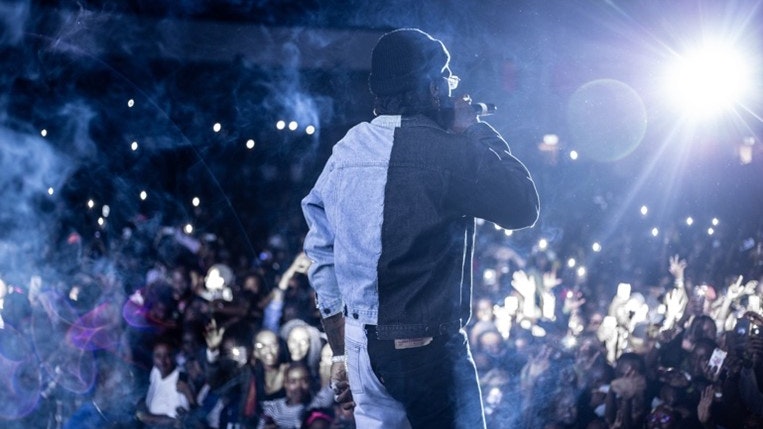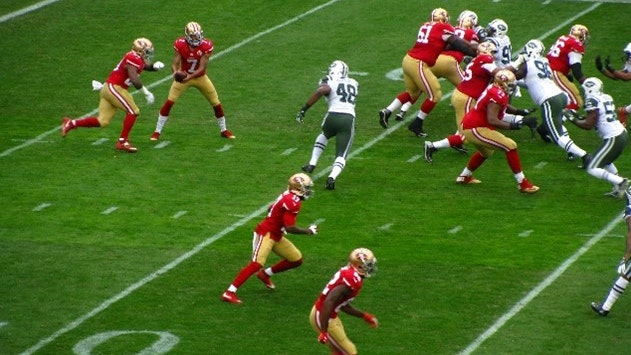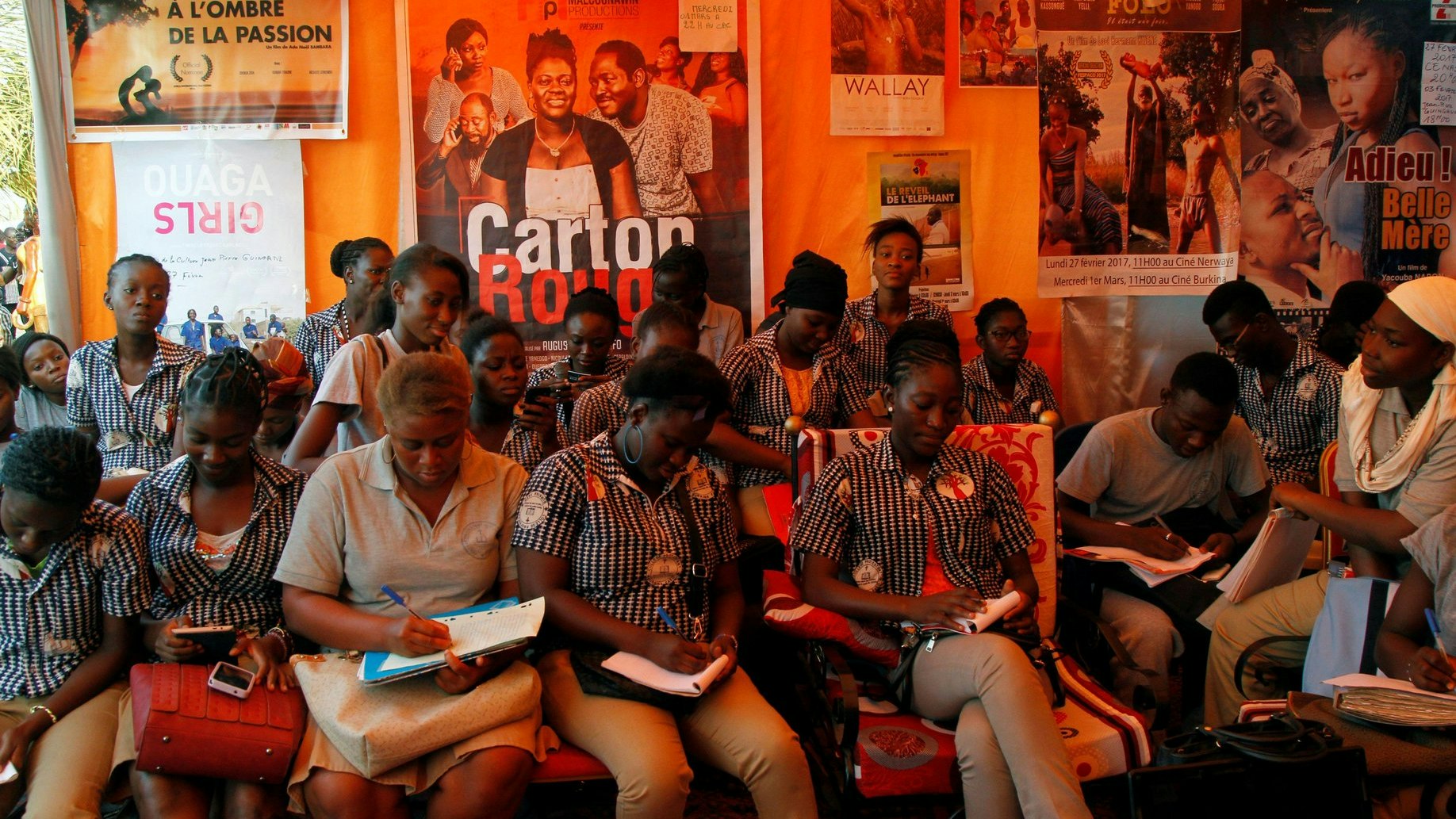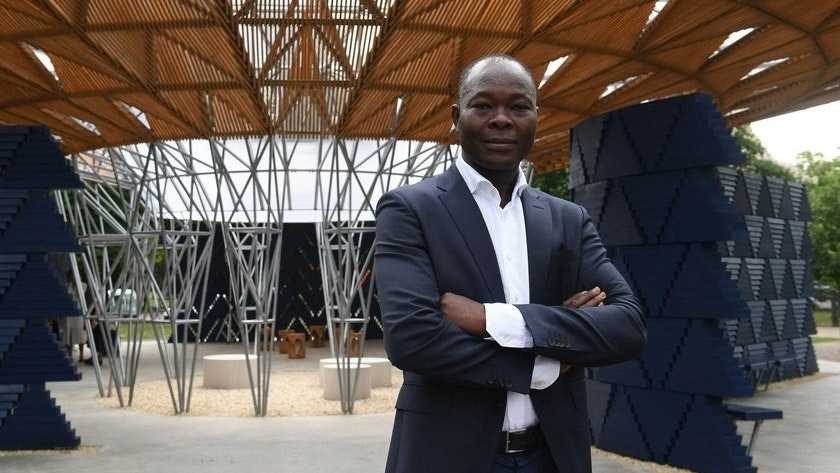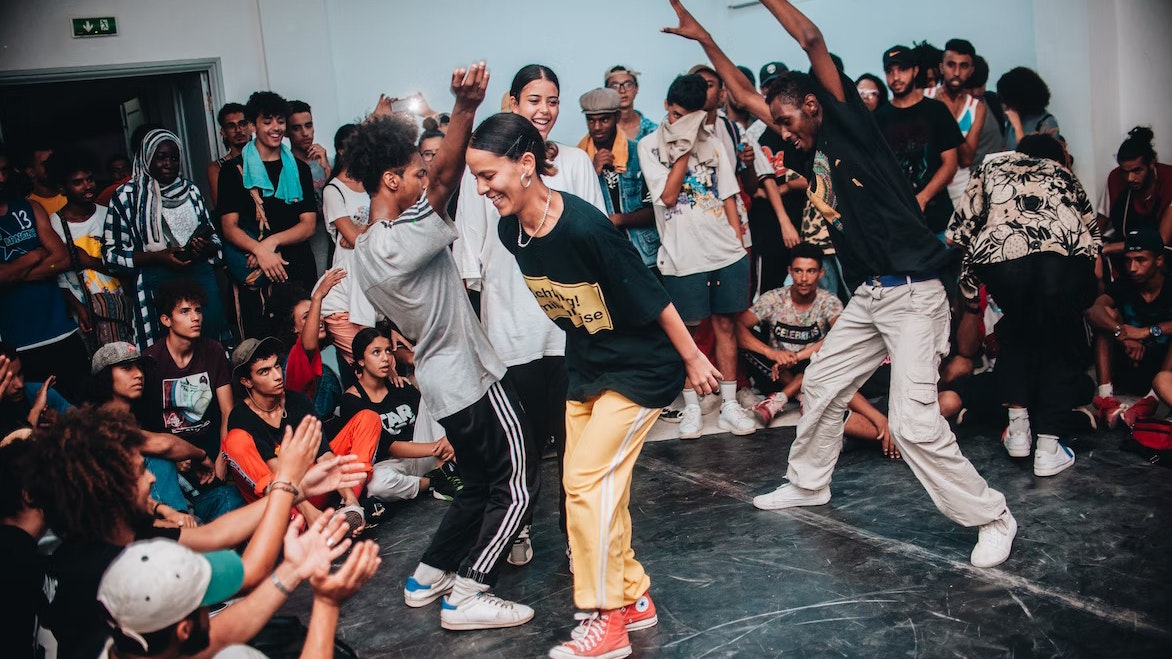
No more questions! We’ve had enough!
We reclaim justice! It’s a right!
No more questions! We’ve had enough!
Rape is a crime.
These are the lyrics from Genji, a Senegalese hip-hop collective, speaking out against the nation’s oppressive attitudes to many issues, including women’s rights.
Across Africa, many young people, and an increasing number of women, are using rap and hip hop as an accessible, direct way to verbalise their feelings and motivate social change.
Of all musical genres, hip hop is especially seen as a visceral voice of the disaffected; a direct, emotive, and verbal way to express uncut, uncensored emotion.
Since the 1980’s, Africa has embraced hip hop as a new, universal platform to speak up and speak out. Many nations stand proud of their historic and burgeoning rap scenes, from Tunisia to Senegal and to South Africa.
As a cultural conduit, hip-hop has created vital avenues for social commentary and public discourse mainly concerning issues of race, poverty, and police violence.
Hip hop history
'Hip-hop is an oppositional cultural realm, rooted in the socio-political and historical experiences and consciousness of economically disadvantaged urban black youth of the late 20th century,’ Author Layli Phillps
Often defined as a culture or way of living, hip-hop has historically allowed those most excluded to transform their experiences into a relatable, potent art form; a universal language and commentary around the everyday realities of being marginalised.
Acknowledging hip-hop’s history also reveals its capacity as a force for contemporary social change.
Born in New York’s African American and Latino urban neighbourhoods during the 1970s, hip-hop was a fusion of different cultural forces and influences.
In this period of ‘urban renewal’ for American cities, a flourishing new youth culture emerged, rooted in the socio-political and historical experiences and consciousness of economically disadvantaged urban black youth of the late 20th century.
Kickstarted by the likes of Grandmaster Flash, DJ Kool Herc and Afrika Bambaataa, hip-hop was at first largely party anthems, often played in block parties and in the underground scene.
For many, hip-hop has played a huge part in the construction of individual and communal identities, unifying marginalised groups through shared struggle, and inspiring the fight for equal rights.
And this accessible, unmistakably genuine style of verbal expression soon spread beyond American borders.
African Rhythm & Rhyme
Nations across Africa have re-created hip-hop in local terms, infusing rap with street language, local beats, and African-orientated imagery.
Facilitated by freedom of speech, hip-hop spread during the 1980s, and quickly became the engine for social and political movements in Senegal and South Africa.
The universal themes of racism, oppression and police violence also struck a strong chord in apartheid-era South Africa. Cape Town’s Prophets Of Da City (POC) and Black Noise, brought South African hip-hop onto the global map. Formed while still under apartheid, their lyrics focussed on police violence, oppression and referenced local heroes, such as Steve Biko.
Senegal’s routes to rap were wide open, with influences from Paris and New York imbuing Dakar, and the wider nation, with fusions of creative energy. Senegalese rap group, Positive Black Soul, was the first collective to gain a major international recording contract.
More notably, Senegalese rappers used their music to politically educate and demand change by highlighting the importance of the 2000 presidential elections. They urged people to participate in the polls, inviting democracy and ending four decades of rule by one party.
Rapping up the rulebook
‘Hip-hop allows the women to go against the grain. It talks about everything society does not want you to talk about. Rap does not shut up’. Senegalese rapper Geni.
Hip-hop’s power to encourage discussion, provoke thought, and challenge entrenched societal norms is making the artform invaluable to women across Africa, as it offers a means of voicing their intersectional struggles.
With the help of collectives, female artists have carved spaces within the culture’s hypermasculine foundation, weaving notions of gender equality and cultural acceptance to counteract existing narratives mired in patriarchy, gender norms, and the politics of respectability. The artists rap for agency and push for a greater acceptance of non-conformity.
Speaking up to break the silence, up-and-coming Tunisian female artists in North Africa’s exciting hip-hop sphere are meeting societal resistance with freedom of expression.
Nesrine Mokdad (aka Anonymous) has faced challenges from societal pressures in her creative pursuit. She has not allowed her voice to be quelled, despite negotiating her passion with motherhood and familial resistance.
Beyond Tunisia’s rising scene, Senegal claims an array of progressive female artists and collaborations who address taboos surrounding women’s rights.
Collectives like Genji Hip-hop are a case in point; evolving from a WhatsApp group in 2017 to become a 70 strong group of female Senegalese rappers, singers, DJs, and graffiti artists. Genji has flourished into a thriving organisation holding concerts, workshops, and space for women to discuss their concerns locally and globally.
As one of the most important, accessible, and altogether influential movements in the world today, hip-hop is unrivalled in its ability to demand justice, acceptance, equity, and peace for those most marginalised in society.
From encouraging voter participation in Senegal, to unifying voices in apartheid South Africa, hip-hop provides a voice to the previously voiceless.
Though already prepped with fertile soil, Africa’s hip-hop scene is bound to grow, with a pan-African vibrancy proclaimed by the ever-evolving originality, creativity, and self-expression of the youth.
